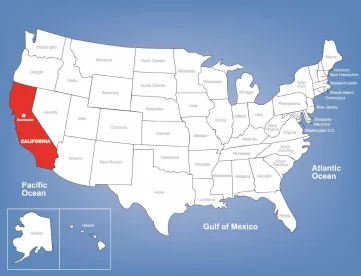The California Supreme Court held this month that employers do not owe a duty of care under California law to prevent the spread of COVID-19 to employees’ household members. Kuciemba v. Victory Woodworks, Inc., S274191 (July 6, 2023).
The decision resolves an open question for tort litigation in this jurisdiction. In 2021, the U.S. District Court for the Northern District of California determined an employer’s obligation to provide a safe workplace does not extend to non-employees who contract a virus from the workplace premises. Plaintiffs appealed this decision to the Ninth Circuit Court of Appeals which then posed two certified questions to the California Supreme Court concerning the scope of an employers’ liability when an employee’s spouse is injured by transmission of COVID-19.
Background
In 2020, Robert Kuciemba began working for Victory Woodworks, Inc. (“Victory”) at a construction site in San Francisco. Robert contracted COVID-19 two months after working with employees who Victory had transferred from another location. Robert then carried the virus home and transmitted it to his wife, which resulted in her hospitalization. The Kuciembas later sued Victory for negligence and public nuisance. Robert also sought damages for loss of consortium.
Ruling
After the case made its way to the Ninth Circuit, the appellate court proposed two certified questions to the California Supreme Court:
- If an employee contracts COVID-19 at the workplace and brings the virus home to a spouse, does the California Workers’ Compensation Act (WCA; Lab. Code, § 3200 et seq.) bar the spouse’s negligence claim against the employer?
- Does an employer owe a duty of care under California law to prevent the spread of COVID-19 to employees’ household members?
The Court explicitly held “no” to the first certified question. To address the second question, the Court held that although it is foreseeable that an employer’s negligence in permitting workplace spread of COVID-19 may cause members of employees’ households to contract the virus, recognizing a duty of care to non-employees in this context would impose an intolerable burden on employers and would be against public policy. The Court also noted other policy considerations, including the burden that imposing such a duty would have on California business, the court system, and on the community at large.
Ultimately, the Court determined employers do not owe a tort-based duty of care to non-employees to prevent the spread of COVID-19.
Implications
- Household members of employees may not bring a negligence claim seeking damages for secondhand exposure to COVID-19 due to workplace spread.
- California’s derivative injury rule, under which an employer may be held liable for injuries caused by a third party’s intervening negligent conduct that is derivative of an employer’s negligence, does not apply in situations such as contracting a highly infectious disease where exposure cannot be easily traced.
- A duty of care that would “alter employers’ behavior in ways that are harmful to society” should not be imposed. The Court found it would be impossible to eliminate the risk of exposure to a highly contagious virus even with perfect implementation of best practices. A duty of care under these circumstances could encourage employers to adopt precautions that unduly slow the delivery of essential services to the public.





 />i
/>i
